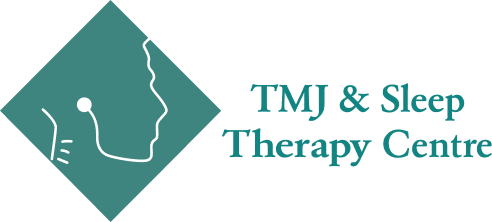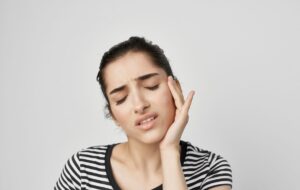Sleep apnea and temporomandibular joint (TMJ) disorders are two distinct conditions, yet they often coexist and share overlapping symptoms. Understanding the relationship between these issues can help individuals find comprehensive relief. At TMJ Sleep Indiana, we specialize in diagnosing and treating both sleep apnea and TMJ disorders to improve your quality of life.
How TMJ and Sleep Apnea Are Connected
The TMJ and the airway are closely linked through their shared muscles and structural proximity. When the jaw is misaligned or the muscles surrounding the TMJ are tense, it can affect the airway, leading to breathing issues such as sleep apnea. Similarly, untreated sleep apnea can exacerbate TMJ symptoms by causing nighttime clenching or grinding (bruxism) as the body struggles to maintain an open airway.
Overlapping Symptoms: Jaw Pain, Snoring, and Fatigue
Patients often ask, “How do I know if my TMJ disorder is related to sleep apnea?” Here are some common overlapping symptoms:
- Jaw Pain or Stiffness: Frequent clenching or grinding due to sleep apnea strains the TMJ.
- Snoring or Gasping for Air: A hallmark of sleep apnea, these symptoms can indicate airway obstruction.
- Headaches or Migraines: Both conditions can cause tension headaches, especially in the morning.
- Fatigue: Poor sleep quality from sleep apnea leads to daytime tiredness and irritability.
- Ear Pain or Fullness: TMJ issues often cause ear discomfort, which can overlap with symptoms of sleep disturbances.
The Role of Oral Appliances in Treating Both Conditions
One effective treatment option for managing both TMJ disorders and sleep apnea is the use of custom oral appliances. These devices are designed to:
- Reposition the Jaw: Improve alignment to reduce stress on the TMJ and keep the airway open.
- Prevent Clenching and Grinding: Protect the TMJ from further strain caused by bruxism.
- Enhance Sleep Quality: By addressing airway obstruction, oral appliances promote restful sleep.
At TMJ Sleep Indiana, we create custom-fitted oral appliances tailored to each patient’s unique needs, ensuring optimal results.
Why Treating Sleep Apnea Can Relieve TMJ Pain
Addressing sleep apnea often leads to significant improvements in TMJ symptoms. Here’s how:
- Reduced Nighttime Grinding: Proper airway management eliminates the body’s need to clench or grind to maintain airflow.
- Improved Muscle Relaxation: Better sleep quality reduces tension in the jaw and surrounding muscles.
- Decreased Inflammation: Treating sleep apnea alleviates systemic inflammation, which can exacerbate TMJ pain.
By treating the root cause, patients experience relief from both conditions simultaneously.
When to See a Specialist for Diagnosis and Care
If you experience symptoms of TMJ disorders, sleep apnea, or both, it’s crucial to seek professional evaluation. Consider scheduling a consultation if you notice:
- Persistent jaw pain or stiffness
- Chronic snoring or waking up gasping for air
- Frequent headaches or daytime fatigue
- Ear discomfort or a sensation of fullness
At TMJ Sleep Indiana, our specialists use advanced diagnostic tools to identify and treat these interconnected conditions effectively.
Partner With TMJ Sleep Indiana for Comprehensive Care
Living with sleep apnea and TMJ disorders can be challenging, but you don’t have to face it alone. At TMJ Sleep Indiana, we offer integrated treatment solutions designed to address both conditions and restore your well-being. From custom oral appliances to lifestyle guidance, our team is dedicated to helping you achieve long-term relief.
Ready to take control of your health? Contact TMJ Sleep Indiana today to schedule a consultation and learn more about our comprehensive care options.





